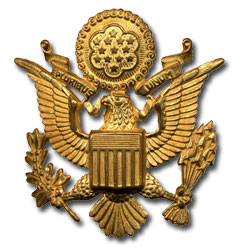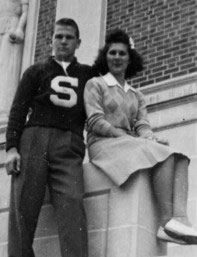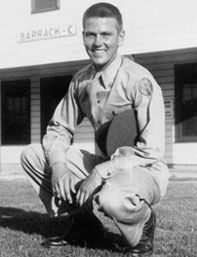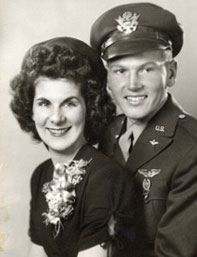On the morning of December 7,1941, Japan attacked the United States, thus drawing America into World War II, and ultimately sealing the fate of thousands of American boys. These were eighteen or nineteen year old boys from across town or next door. They were being called upon to save Europe and Asia, yet many had never left their hometowns. When those boys left to cross the Atlantic or Pacific Ocean, they regularly left girlfriends, fiancées, or wives behind with the simple promise of return. They went off to defend liberty with a determination to ensure the ones they loved were safe from harm. Protecting the nation and women they loved was reason enough for their generation to go, fight, and win World War II.
The war brought on many changes for men and women in the early 1940s; however, some things remained constant on the home front. On October 23,1942, Norman Davis celebrated a birthday. A war could never change that fact, but it was no regular birthday as he was to be married to Miriam Hoss on the same day he turned twenty years old. After the marriage, the couple would live a happy, normal life for two months, but in January he received his draft notice and was inducted into the Army of the United States of America on January 9,1943. The newlyweds were split apart just as soon as their marriage had begun, but Davis promised to return to his wife and packed his bags for the life of a soldier. Norm Davis was drafted into the United States military to defend liberty and ensure an Allied victory, which he did with a fierce determination and tremendous courage, but the reason he fought in the war was not only for the United States, it was more importantly for the woman he had to leave behind.
Norman Edward Davis was born on October 23,1922, in Indianapolis, Indiana. He grew up on the south side of Indianapolis with his parents and three brothers. He graduated from Southport High School in 1940 and worked at Miller Maid Cabinet Shop after high school. He was out on a date with a girl from a local high school when he first heard of the Pearl Harbor attack. The attack did not directly affect him emotionally, but in early 1942 that changed when his brother Bob was drafted into the Army. Davis had no urge to enlist in the armed forces himself, and by the middle of 1942 he had a pretty good idea that he would be drafted.
Once he received his draft notice, he left for a one-week induction at Fort Benjamin Harrison in Indiana. His next stop would be Atlantic City, New Jersey, where he would go through Army basic training. While in Atlantic City, he first saw the opportunity to take the Cadet Exam. He had been assigned to the Signal Corps, and joining the Army Air Corps seemed like something more appealing. He took the exam and passed, so instead of going to infantry training, he left for flight school. When he left in January, Miriam kept her job at the gas company and lived at home with her parents, not knowing when she would see or hear from her young husband again. The couple would write to each other religiously while he was in the service, but during the first months of his training, he had little time to do so. On the home front, Miriam didn't have many things she could do to help the cause at the time he left. "Things really didn't seem that different to me until the later part of 1943 when rationing was increased and the war effort was more apparent at home." While the war effort slowly picked up in Indianapolis, Norm was crisscrossing the country from airfield to airfield trying to earn his wings.
After three tough months in Atlantic City, Davis went to Nashville, Tennessee, for classification school. Here he would learn if he would become a pilot, navigator, or bombardier. After a month of testing his mental acuity and physical dexterity, he left for San Antonio, Texas, to become a pilot in class 44A, meaning he would graduate in January of 1944. San Antonio was one of the loneliest times for Norm as he was unable to write a single letter home during his two-month tenure there. This period of no communication with Miriam proved to be very trying on him, and the training the toughest he would endure. When he completed his pre-flight schooling, he departed for primary school at Brayton Flight School in Cuero, Texas, as a fighter pilot. He had never been in a plane before Brayton, but in a little over a year he would be strafing and bombing in Europe.
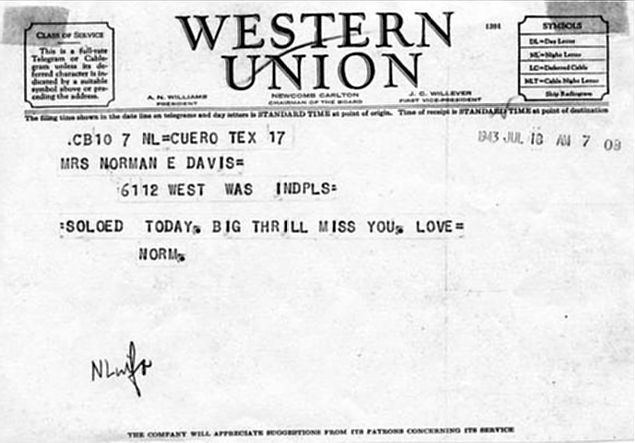
During the first year of his training, Davis only got to see his wife three times. When he got to see her, his spirits were lifted, but being away from her so much made training that much more difficult. After Brayton, he left for Independence, Kansas, and flew BT-13s and BT-15s. He returned to Texas the second week of November and would remain there until he received his wings. He flew AT-6s at this airfield and had gunnery practice on Matagorda Island, Texas, the first week of January. The path Davis followed was like many other men making up the United States Army Air Corps in the early 1940s. Howard Goodner, the radio operator on a B-24 Liberator, followed a similar path and shared common feelings with Davis. Howard didn't expect to be at Buckley, Field long. It was merely one more loop in the holding pattern, one more station in the seemingly endless conveyer belt of Army processing." Davis would venture to nineteen different bases during his training. He would graduate from flying school at Aloe Army Airfield in Victoria, Texas, on January 6,1944, and was commissioned as a Second Lieutenant on the following day. Miriam was with him at the ceremony. Life would get better for the couple now that he had become an officer. He would be stateside for quite a while longer while continuing with advanced training, but unlike in his basic training, Miriam would travel with him.
Davis had now spent one year in the United States Army. As an officer, he made $250 as compared to the $100 he made over the past year as a cadet. His advanced training would take place mainly on the East coast of the United States. He flew his first P-47 at Bradley Field in Windsor Locks, Connecticut, from March 5 until April 28. During the advanced training, he and Miriam made many friends, going to see the Rockettes and Glenn Miller with a few other couples in New York City. Things were going well for the young couple, but they both knew that his overseas duty would come soon. The inevitable orders came through and he departed for Camp Kilmer, New Jersey, on May 8,1944, to get his overseas assignment. Miriam returned to Indianapolis via train to live with her parents for the duration of his overseas service. "The train ride home was absolutely terrible. The train was very full and I was miserable the whole way back to Indianapolis." She would not see him again until he returned from Europe in 1945. Davis departed for England in the Rangitata, a vessel from New Zealand, with a large convoy of Navy ships and arrived in Liverpool thirteen days later. When he arrived, he was given a message that read, “You have landed on the largest air base in the world...Great Britain! You are now in a theater of war." By simply stepping off of the boat, he had entered a war zone; this is where his months of training would come into action.
In England, more training would take up his time from May 23 until June 28 at the Eighth Air Force Fighter Training School. During his long training, he had made three very good friends: Dick Butler, Jim Harbers, and Pete Lester. When the time came to get assigned to groups, the four decided that they would look for a group with many openings so they could all get in it. In hindsight, this proved to be an unwise decision by the men as any group that had a lot of openings had lost a lot of pilots. The 354th Fighter Group would be where they all were assigned. The 354th had been in England since November 1, 1943, but was getting ready to depart for France when Davis and company arrived.

